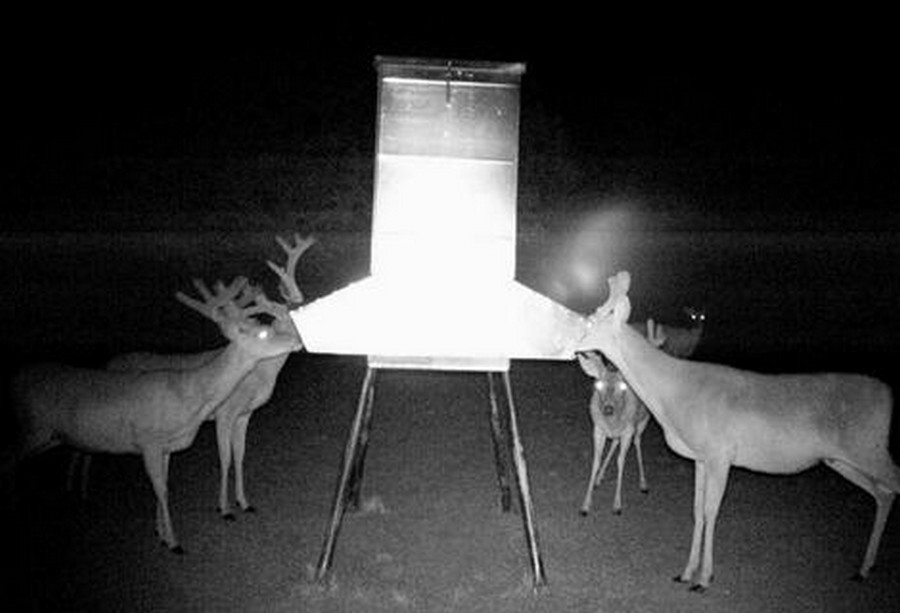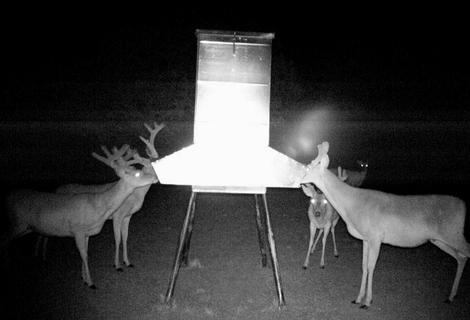Spring is officially here and plants are green again, but the lack of rainfall has kept native vegetation from really taking off. On the bright side, trees, shrubs, and vines are leafing out thanks to some precipitation and warmer temperatures, and providing new-growth browse for hungry white-tailed deer.
And speaking of deer food, there is some on-going research that may shed more light on the supplemental feeding of deer and its impact on native plants. Deer managers agree that supplemental feeding, whether it be protein pellets, whole cotton seed, or some other type of high-protein food, really helps local deer populations.
However, the words “supplemental feeding” have become almost synonymous with “deer management” in some circles, and although not totally accurate, it’s not far off. Although the management of deer populations incorporates much more than the addition of free-choice protein, most landowners giving deer management an honest effort are providing some sort of supplemental food.
So as common as this practice is for the management of white-tailed deer, it also deserves further attention. By definition supplemental food is, well, supplemental. The foods placed out for deer are merely there to add to an individual deer’s natural diet, not replace it. If this were false then a property could support an unlimited number of deer as long as food was continually added to the system. This won’t work.
But some often confuse deer breeders and deer management. Yes, deer can live in pens devoid of vegetation with protein pellets and water, but imagining a ranch that looks like a deer pen would be a sad, sad sight and the deer population would still suffer from density-dependent factors. It was commonly thought that the addition of supplemental food reduced a deer’s use of natural plants — and it’s true — but maybe it all goes down a little different.
Past research found that deer provided with supplemental food in the form of free-choice protein pellets still used native plants, but the deer only consumed the most highly preferred plants available to them.
However, preliminary results from research conducted in South Texas suggests that supplemental food does not encourage selective foraging by deer. So why is it important? Well, we all know that deer prefer to browse on certain plant species. Food preference is probably a function of palatability, digestibility, and overall nutritive value.
In areas with high numbers of deer, highly palatable browse species become over-utilized, stunted (hedged), fail to reproduce, and can die. When this happens over a ranch or ranches and year after year, entire plant species can disappear. This leads to an unhealthy system with plant species after species succumbing to over-use over time.
Under the first scenario, supplemental feeding would not prevent the over-use of preferred browse species by deer, but new research may find that free-choice feeds reduce the use of preferred browse. This is important for deer managers that are interested in providing good wildlife habitat because it gives real credit to the fact that free-choice pellets really are supplemental.
Deer not only use preferred browse species, but they also use moderately and slightly preferred browse plants. This widespread use of browse species suggest that supplements can buffer the use of native plants by deer, but not fully protect them.
So regardless of what the current study finds, both scenarios end up proving that deer can not live on supplemental feed alone. Even when supplemental food is provided free-choice, white-tailed deer still desire native browse plants in their diets. Not only are these plants important for food, but also for the shelter and screening cover they provide for deer and other wildlife species. And let’s not forget that browse plants typically contain protein levels ranging from 15 to 35%. And that can feed your deer and really supplement your supplement, for a lot less money.


Hello, I live in Westwood Shores, Texas, outside of Trinity. It’s a controlled community and last week they ordered everyone to quit feeding deer. The game warden was called in to help with the order. I have been feeding my deer for over 6 years. I walked among them, respected their space, and never had any trouble with them. I feel so sad. Is there anything to do? Do you have documents that support the feeding of deer?